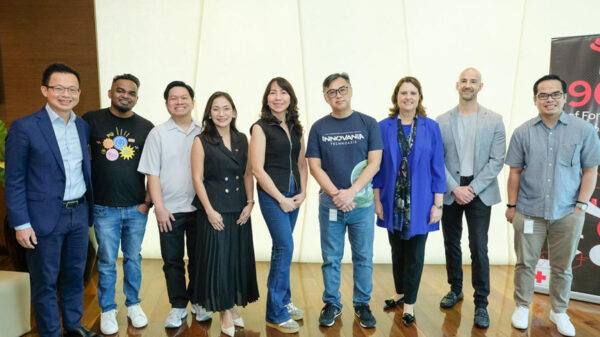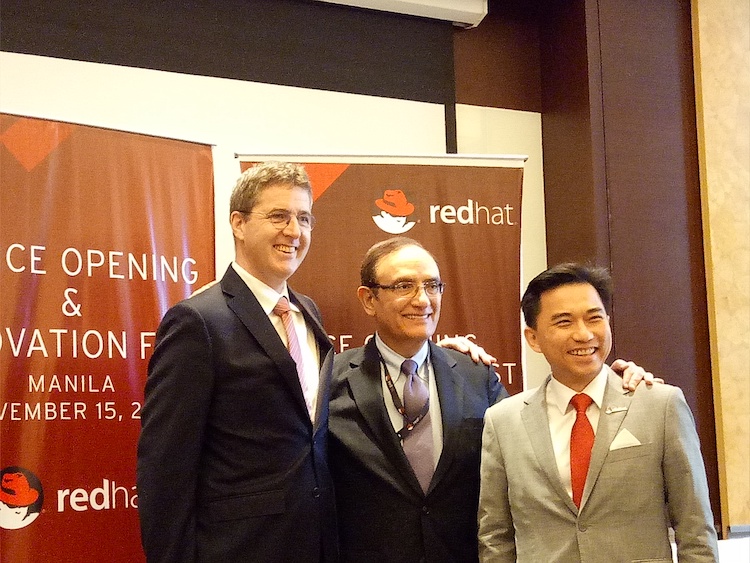US-based provider of open source solutions Red Hat is optimistic about the potential of open source technology in the Philippines, and encourages local enterprises to adopt it as it can enable business innovation.

From left: Damien Wong, Senior Director and General Manager for ASEAN at Red Hat and Alessandro Perilli, General Manager for Cloud Management Strategy at Red Hat.
“We are optimistic about the potential open source technology offers customers across industries in the Philippines,” said Damien Wong, Senior Director and General Manager, ASEAN, at Red Hat. “Red Hat has been nurturing collaborations with local companies to help create a better understanding of open source by incorporating best practices from global as well as local enterprises.”
Wong said the main consideration for the adoption of cloud computing is the availability of broadband and bandwidth. Since the Philippines had these factors, he expects many local enterprises to adopt Red Hat technology as the awareness on it is also growing.
“The prospect of open source technology in the Philippines is very bright,” Wong said. “There have been a lot of bright people and good developers in the market. If there is a general awareness about the technology in the market, definitely open source has a bright future in the Philippines. The economy will also benefit as a result of the open source innovation.”
Regarding expansion plans in the Philippines, Wong said they will expand their presence in the country where setting up of a subsidiary is a consideration.
“We have many categories of partners in the Philippines. We have a lot of local resellers. We will focus on growing not just in number but more in terms of quality,” said Wong.
De facto standard
He also said that Red Hat is now the de facto standards in the open source technology. It addresses the needs of its partners in any way and serves its various customer segments who are buying directly on Red Hat or through its partners. It also provides open partners access to trainings to ensure its ecosystem to continue to be viable; and committed to support their customers in the Philippines.
Red Hat customers consist of a lot of large companies in the telecommunications, banking, transportation, and in services sectors. It offers a range of mission-critical software and services covering middleware app dev-mobile, virtualization, cloud, operating system, and storage. Its product portfolio is designed to match the challenges faced by enterprises.
Wong relayed that in terms of Red Hat’s core infrastructure business which Linux is its mainstay, the company has grown in the range of 11% to 13% globally. Their emerging products which include middleware cloud products grew in excess of 40% compounded.
“This is a clear indication that Linux and the extension across our product portfolio are very successful,” Wong said.
Wong also said that open source technology is actually powering a lot of companies to innovate.
“We help organizations leverage the value of open source in the enterprises. It also gives customers a peace of mind like you can run a core banking system or billing system on open source on many people,” said Wong.
Wong also mentioned that for most projects to succeed in open source, they would need open standards and therefore ensures portability and interoperability.
“Most successful open source projects are like Linux. It is an open source and agnostic, so they are not tied to a particular vendor. For example, Linux was best in many cases on x86 architecture. It does not tie itself in a particular x86 vendor. It could be any x86 vendor and because of the open nature of the project.”












































































































